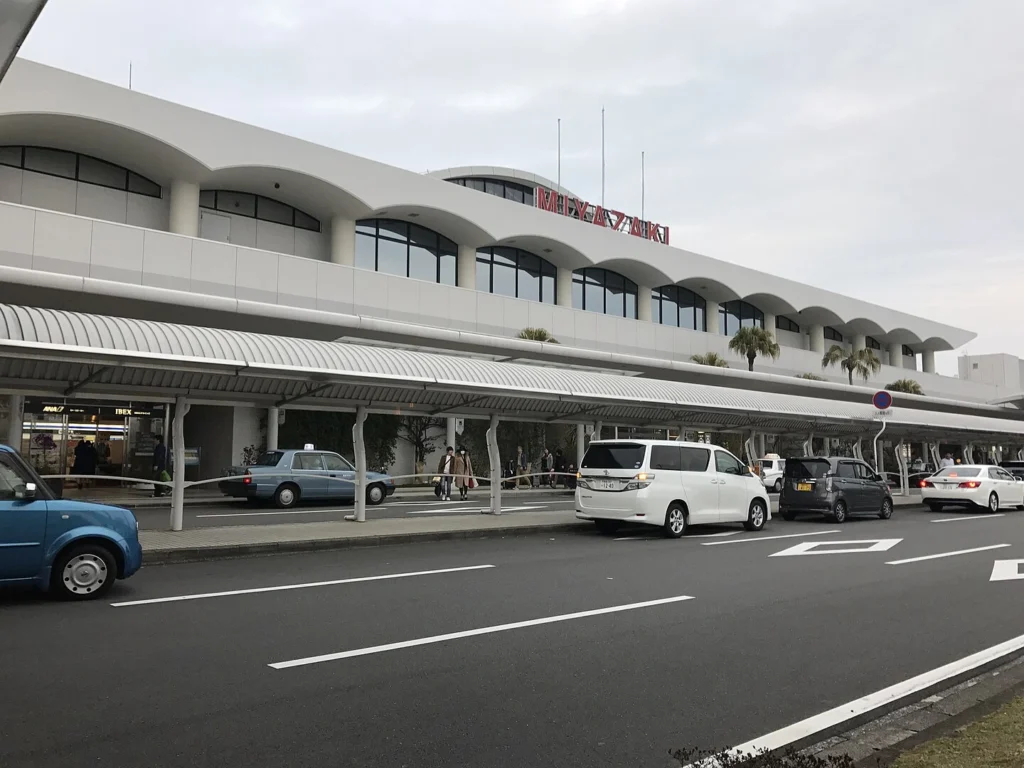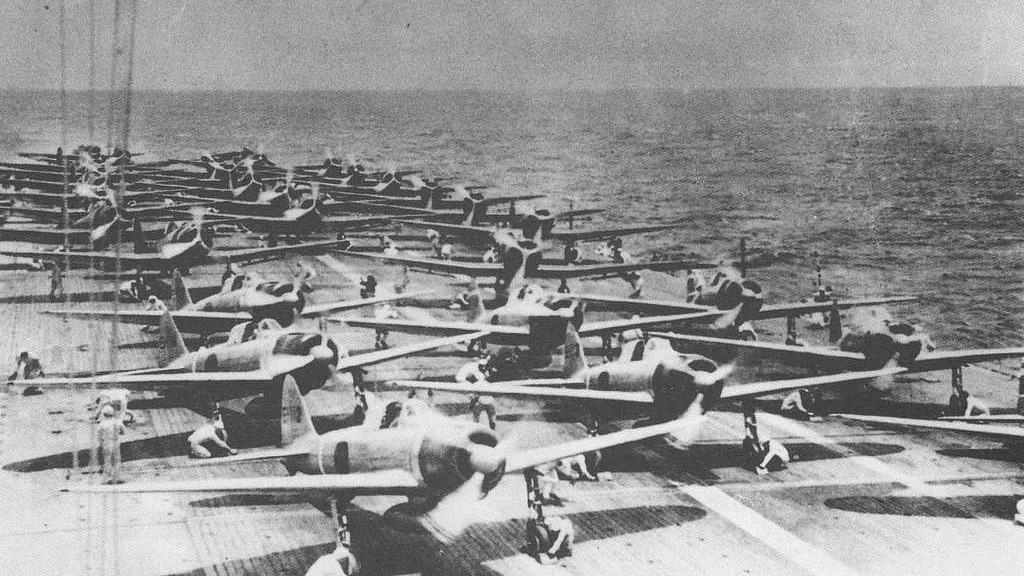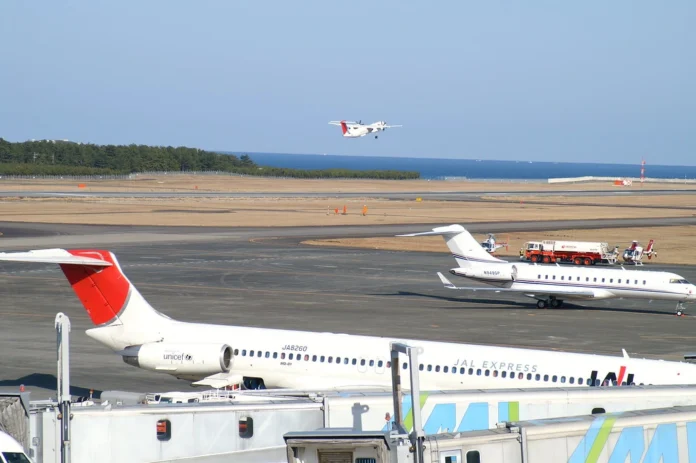MIYAZAKI- An unexploded World War 2-era American bomb explosion at Miyazaki Airport (KMI) in southwest Japan, caused a significant disruption to air travel. The blast created a substantial crater in a taxiway, measuring 23 feet wide and 3.2 feet deep, forcing the closure of the airport’s runway.
The explosion occurred shortly before 8 am local time on Wednesday, prompting the immediate shutdown of flight operations. Fortunately, no injuries were reported, and no aircraft were in the vicinity during the incident.

World War 2 Bomb Explosion at Japan’s Airport
Ground Self-Defence Force bomb disposal experts identified the source as a 250kg American bomb, likely buried during wartime raids. The team is currently investigating the cause of the detonation.
The blast’s impact spread asphalt fragments across a 200-meter radius, including the runway. Nearby aviation school footage captured the explosion, showing debris soaring into the air.
As a result of the runway closure, 87 flights were grounded, affecting major carriers such as Japan Airlines (JL) and All Nippon Airways (NH). These cancellations disrupted travel plans for passengers on routes connecting Miyazaki to key cities like Tokyo, Osaka, and Fukuoka.
Japan’s top government spokesperson, Yoshimasa Hayashi, assured the public that there was no risk of further explosions.
Video Going Viral
A video captured by a nearby aviation school revealed the explosive force of a World War II-era bomb at Miyazaki Airport, showing tarmac debris erupting skyward like a fountain.
Local firefighters responded to reports of an explosion at 7:59 am local time, with smoke visible at the scene. Police promptly ordered airport staff to evacuate the area.
The blast occurred dangerously close to active flight operations. Four flights had used the affected taxiway earlier that morning, with a Japan Airlines aircraft carrying 93 passengers passing the site mere minutes before detonation.
The incident led to widespread flight cancellations, impacting approximately 3,400 travelers and forcing many to extend their stays.
One affected passenger, Shun Akahori, 28, told Kyodo News he had to reschedule his return to Osaka after his business trip, opting to prolong his stay in Miyazaki due to multiple flight cancellations. The airport resumed operations the following day, with a Japan Airlines flight to Fukuoka departing at 7:40 am local time.

WW2 Navy Base
Miyazaki Airport’s history as a former Imperial Japanese Navy base during World War II contributes to its vulnerability to such incidents. The site once served as a launch point for kamikaze pilots on their final missions.
The transport ministry confirmed that multiple unexploded US bombs have been discovered at the airport in the past.
The persistence of unexploded ordnance in Japan, nearly eight decades after the war’s end, remains a significant concern. Similar discoveries were reported at a nearby construction site in 2009 and 2011.
The scale of the issue is underscored by recent data from the Self-Defense Forces, which reported the disposal of 2,348 bombs weighing 37.5 tonnes during the 2023 fiscal year alone.
Stay tuned with us. Further, follow us on social media for the latest updates.
Join us on Telegram Group for the Latest Aviation Updates. Subsequently, follow us on Google News.
The post World War 2 US Bomb Explosion at Miyazaki Airport, Japan, 90 Flights Cancelled appeared first on Aviation A2Z.


